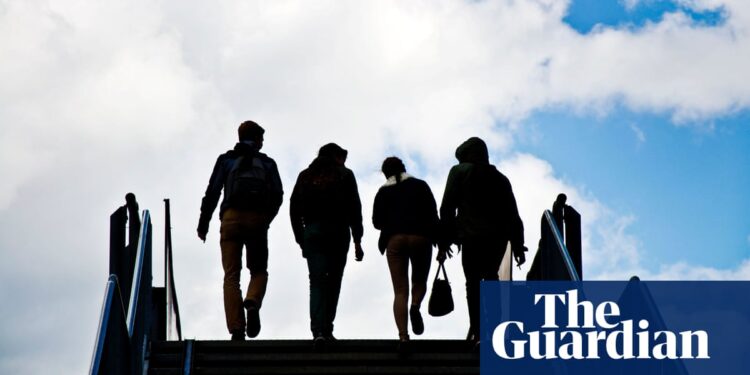A secondary school in the Netherlands is blocking parental access to children’s grades for a term in an attempt to reduce the pressure on pupils to perform.
Like many countries, the Netherlands has a system under which students need a certain grade average to progress to the next year, but Jordan – Montessori Lyceum Utrecht found that a widely used app that shares every mark with parents was increasing stress among children.
The school’s economics teacher, Stijn Uittenbogaard, studied 500 of its pupils children in the school, half of its cohort, and discovered that when parents checked the app regularly, children rated their stress at 2.7 out of five. Those whose parents were not constantly checking reported a level of two.
“This pressure for students to achieve is really a modern thing in my opinion,” Uittenbogaard said. “When I was at school, there was a report four times a year, but otherwise, you could tell your parents when and what you wanted. Now parents can get a push notification on their telephones: ‘Hey, your child has had a new result,’ and the child comes home with their parents sitting ready for a conversation. This is appalling.”
After discussing his results with the rector, Geert Looyschelder, the school’s leadership proposed a month-long pause on sharing results. Student groups were positive, 95% of parents agreed and the parents’ council insisted on a 10-week suspension.
Looyschelder, an educator for 40 years, believes that angst over grades in the mainstream Dutch school system is dominating over the development of life skills such as empathy and flexibility. The Montessori method, he said, was about giving students “responsibility and ownership of the choices they make in their learning process”.
“The fact that parents are looking over the students’ shoulders only causes stress,” he said. “In our education system, we always say: ‘You have the right to make mistakes. That’s how you learn.’”
Lotte Vlaming, the director of Ouders en Onderwijs, a national parents’ association, said reactions to the pilot had been positive. “For some time we have been hearing about parental concerns about pressure to perform and also about children’s privacy,” she said.
“Perhaps they have the right not to have everything shared about them with everyone. And it shouldn’t replace a conversation [between school and parents] if things aren’t going so well, because sometimes parents hear this very late.”
after newsletter promotion
The school near Utrecht is not the only voice calling for less pressure and grade obsession at a time of declining results in maths and language, an urgent teacher shortage and a growing number of dropouts. Repeated studies, such as a 2021 report by the Education Council of the Netherlands, have called for later testing and selection to reduce stress and improve equal opportunities.
Karen Veij, a former director of the testing service Bureau ICE who wrote a thesis on where the Dutch testing system is going wrong, praised the experiment. “Our whole testing system means that children can’t fail and every figure counts,” she said. “But if you don’t get a ‘satisfactory’, you should have the chance to do it again … It’s important that you understand.”






